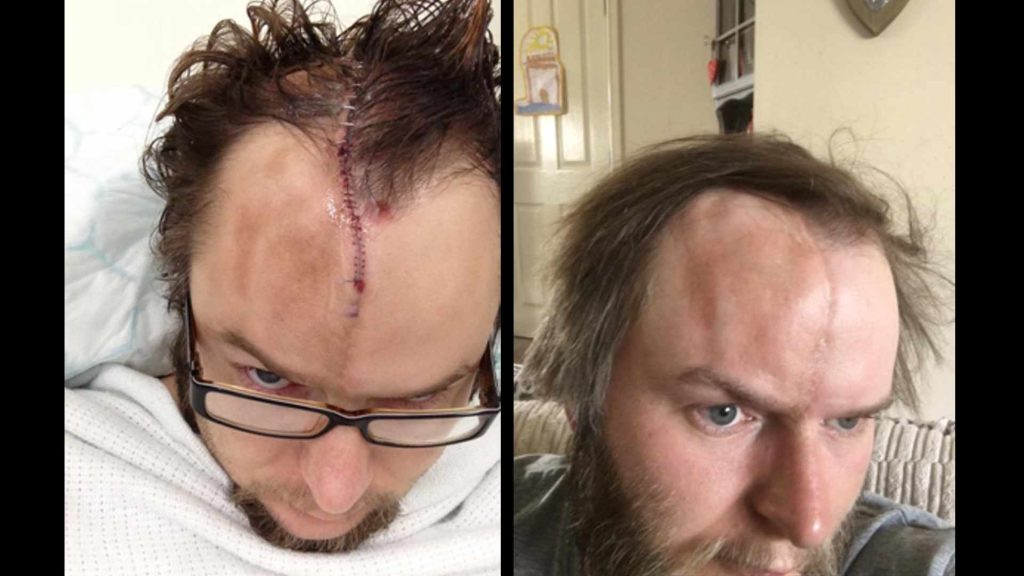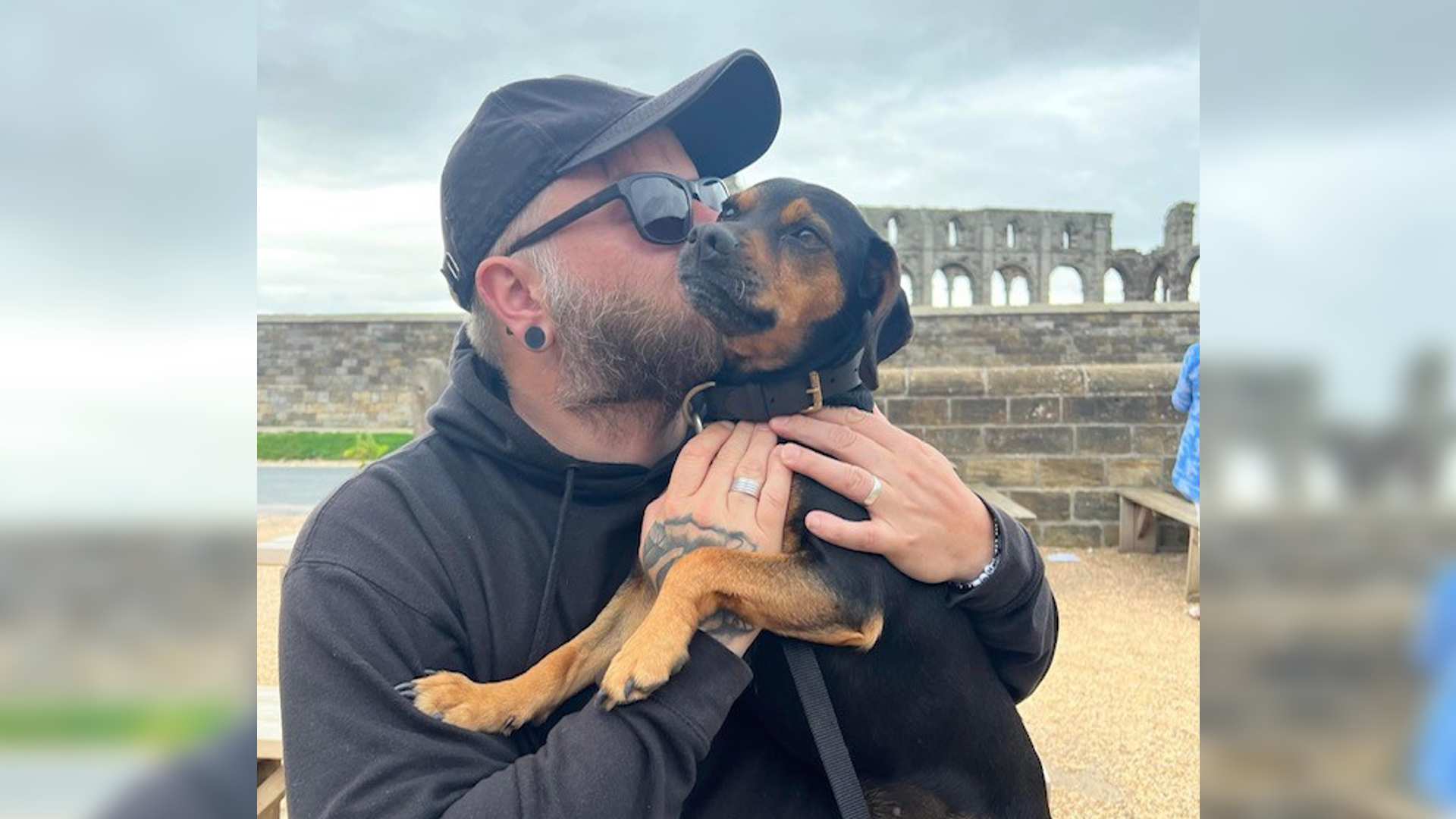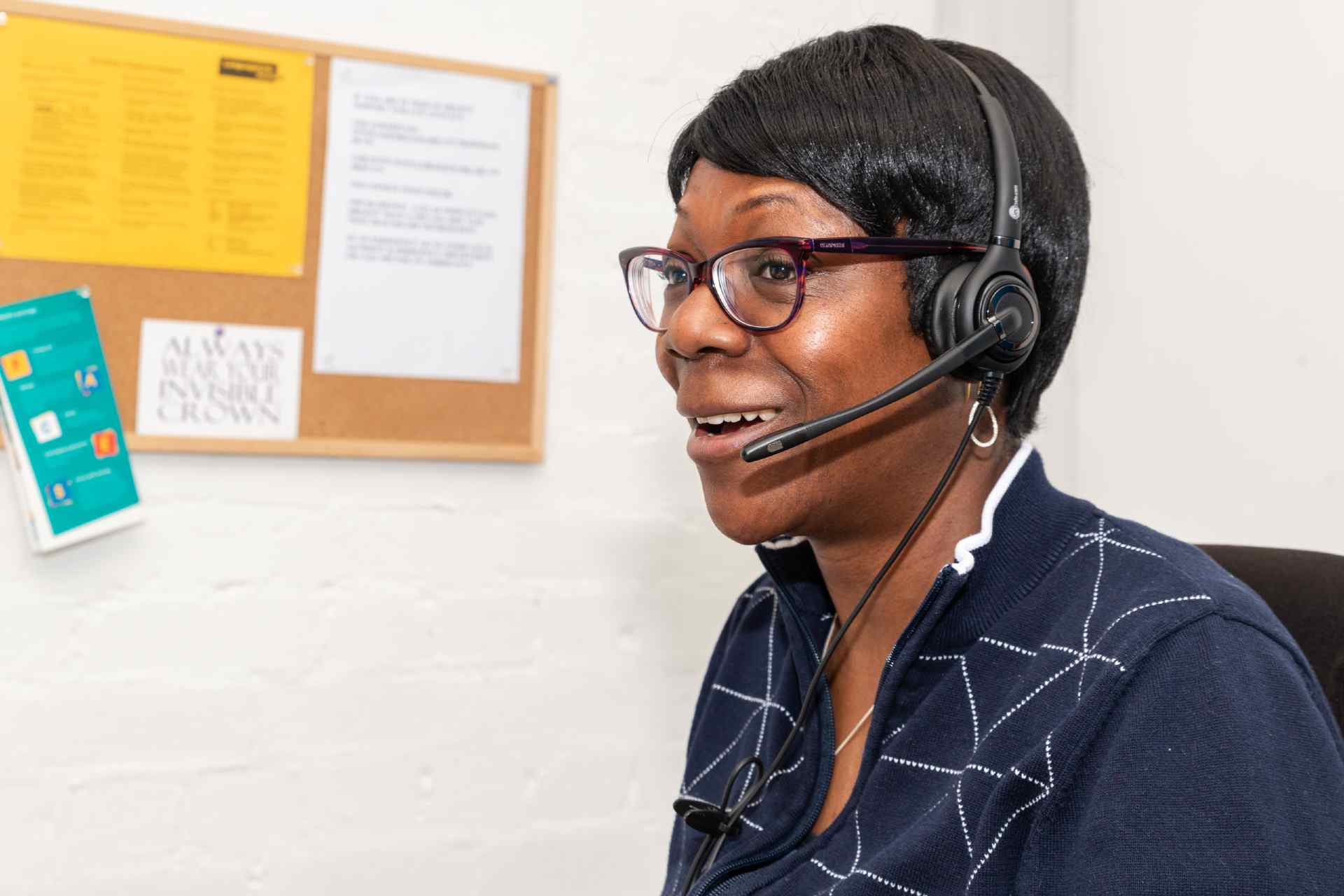I’m Tom and I have linear morphea en coup de sabre, a rare condition which causes lesions on the skin. In my case, the lesions appear on my scalp.
From 12 years old I was inspired by my older brother’s tastes in music. I loved late 90’s grunge and Brit rock, with Nirvana my favourite band throughout my teens. I even decided to grow my hair like Kurt Cobain and had long blonde locks throughout my early teens. When I got to the age of 16, I decided it was time for a new hairstyle to leave school with and begin my working life.
One night, a friend and I had plans to attend a 16th birthday party and he was going to stay over as he lived out of town. He asked me if I could give his hair a buzz over with my dad’s hair clippers, and I found myself asking him to do the same to me. We hit the party both with freshly shaved heads! It wasn’t until my hair started growing back that I noticed a very small and pale diamond shape on my hair line just above my forehead.
Sometimes I feel I’ve been robbed of an identity that I could have had if I didn’t go through these traumas in my teens.
Initially, I didn’t think anything of it, but then it started receding and growing in size. I went to my GP who at the time misdiagnosed me with vitiligo and subsequently gave me no medical support. My mother made me appointments with holistic therapists to try anything to cure it, as by then the mark was spreading down towards my nose quite aggressively. After a few more appointments, a dermatologist finally diagnosed me with linear morphea en coup de sabre.
Knowing very little about the condition, we spent some time researching it to find out that it was a difficult illness to treat and very rare, especially in men. My first course of treatment involved taking methotrexate for a few years. It gave me about five days of the week feeling somewhat normal and the rest feeling severely unwell, because of the adverse effects of such strong medicine.
For a while, this seemed to slow down the progression of my lesions, enough to warrant having cosmetic surgery to remove the remaining scarring. I was cut from my nose to my crown and had inches of scar removed. This left me with a straight neat scar down my face.

Tom had surgery to remove the lesion on his scalp
I got on with my life until my mid-twenties when my morphea returned. It was just as aggressive and devastating as before, and it was suggested that I try cyclophosphamide infusions. These were explained to me as a chemotherapy treatment that breaks down your immune system, and then you naturally rebuild it, hopefully without the morphea.
I had to take two years out of my life and work for this, travelling once a week to Leeds general infirmary from my hometown in Whitby for day long infusions that sometimes meant me staying overnight. It left me feeling the worst I’ve ever felt in my whole life and took a heavy toll on my mental health.
Having a young daughter at home, I felt incredibly inadequate as a parent and relied a lot on my family for support. After two years, the team at the hospital felt that the progression of my lesions was halted long enough that I could have another cosmetic procedure. I went ahead with the surgery and acquired an even longer and bigger scar to deal with.
Years later, my morphea is active and progressing further into my face and scalp. My hair is thinning with age and the condition has become more difficult to hide and manage as a result. I struggle to look at myself in the mirror some days and become upset when I think about my 16-year-old self and the struggles he faced.
Self-acceptance is so important. Once you accept that this is you, the better you’ll feel about yourself.
I grieve for the confidence that young boy lost and feel guilty that he never got to have certain haircuts and enjoy his youth like his friends. That boy had to answer questions about his scars that he didn’t even fully understand himself. Sometimes I feel I’ve been robbed of an identity that I could have had if I didn’t go through these traumas in my teens. However, I’m happily married now and have a great support network around me.
Having a lifelong disease is difficult, but a rare disease hits that much harder! Being almost 40 now, my morphea effects my joints much more than it used to, and my range of movement is noticeably lower. I came to a realisation many years ago that this is who I am and there’s no changing that, so I just have to get on with things. Nevertheless, the effect it has had on my personality and mental health is something I think about daily.
I’ve experienced staring and numeorus questions about my scarring, which can be exhausting. This being said, questions often lead to me telling the person my story, which I find valuable as it reminds me of what I’ve overcome and teaches people about rare conditions.
Self-acceptance is so important. Once you accept that this is you, the better you’ll feel about yourself. Finding online groups of people that share similar experiences can really help with this. You’re never alone in how you feel.

